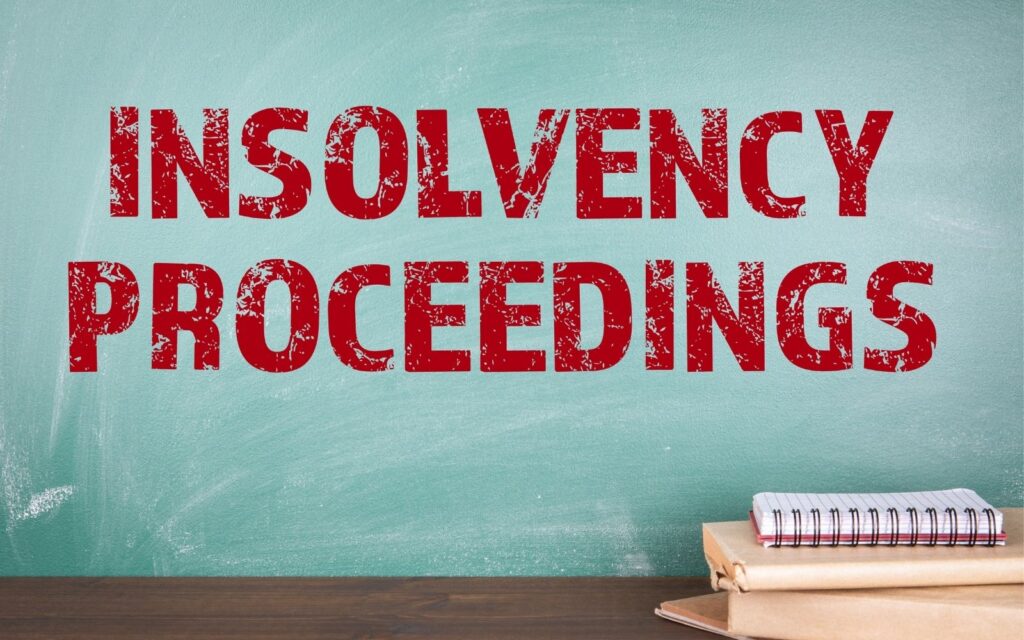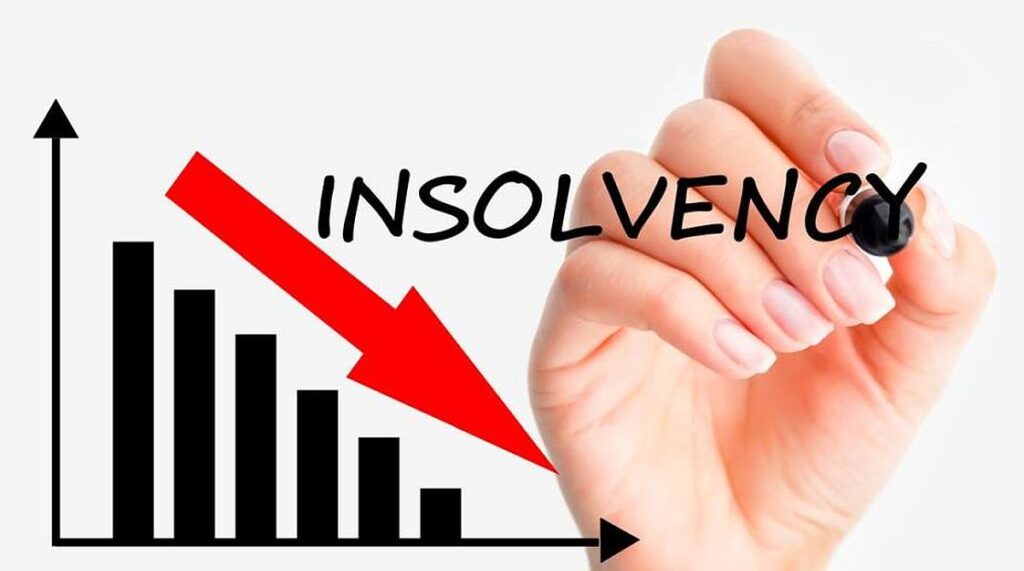Legal Protections for Creditors in Insolvency Proceedings
October 23, 2023
Insolvency proceedings can be complex and challenging, especially for creditors seeking to protect their interests. Understanding the legal protections available in these proceedings is crucial for creditors to navigate the process effectively. This article will provide an overview of the key legal protections for creditors in insolvency proceedings, including understanding insolvency proceedings, the role of creditors, their legal rights, the mechanisms protecting them, and the impact of bankruptcy laws. Additionally, we will discuss how creditors can navigate the legal challenges they may encounter and the importance of seeking legal counsel in these situations.
Understanding Insolvency Proceedings
Before delving into the legal protections available to creditors, it is essential to have an understanding of insolvency proceedings and what do insolvency lawyers do. Insolvency refers to a financial state where an individual or entity is unable to meet its debt obligations. Insolvency can occur through various mechanisms, such as bankruptcy, liquidation, or restructuring.
Insolvency proceedings provide a legal framework through which the assets and liabilities of the insolvent entity are managed and distributed among creditors. These proceedings aim to ensure a fair and orderly resolution of the financial situation, balancing the interests of debtors and creditors.
When an individual or entity becomes insolvent, it can have far-reaching consequences. It not only affects the financial stability of the insolvent party but also impacts the creditors who are owed money. Creditors may find themselves in a precarious position, unsure of how to recover the debts owed to them. This is where insolvency proceedings come into play, offering a structured process to address the financial turmoil.
See Also: Intellectual Property Rights in the Digital Age

Definition and Types of Insolvency
Insolvency can take several forms, and it is crucial for creditors to understand the different types. The two main types of insolvency are personal insolvency, which involves individuals, and corporate insolvency, which involves businesses.
Personal insolvency typically includes situations like bankruptcy, where individuals are unable to repay their debts. It can be a distressing experience for individuals, as they face the possibility of losing their assets and dealing with the social stigma associated with financial failure.
On the other hand, corporate insolvency encompasses cases where businesses face financial distress and are unable to meet their obligations to creditors. This can occur due to various reasons, such as mismanagement, economic downturns, or unexpected events. Corporate insolvency not only affects the business owners but also has a ripple effect on employees, suppliers, and other stakeholders.
Understanding the different types of insolvency is crucial for creditors, as it helps them navigate the complexities of the proceedings and tailor their strategies accordingly. Each type of insolvency presents unique challenges and requires specific legal considerations.
The Role of Creditors in Insolvency Proceedings
Creditors play a significant role in insolvency proceedings. As individuals or entities owed money by the insolvent party, creditors have a vested interest in ensuring that their claims are adequately addressed during the proceedings.
During insolvency proceedings, creditors have the right to participate in meetings, receive relevant information, and exercise their rights to recover their debts. This involvement allows creditors to voice their concerns, present evidence of the debts owed to them, and negotiate for a fair distribution of the available assets.
However, navigating the insolvency process as a creditor can be challenging. Creditors must be proactive in asserting their rights and protecting their interests. They need to gather the necessary documentation, attend meetings, and engage with insolvency practitioners and other stakeholders involved in the proceedings.
Understanding these rights is crucial for creditors to assert their interests effectively. It is advisable for creditors to seek legal advice and guidance to ensure they are well-informed about their rights and obligations throughout the insolvency proceedings. Learn more about the changing role of creditors in insolvency.
Legal Rights of Creditors in Insolvency
When it comes to the legal rights of creditors in insolvency proceedings, several key aspects should be considered. These include the priority of claims, the right to file a proof of claim, the right to challenge the discharge of debts, and other important considerations that can significantly impact the outcome for creditors.
Understanding the intricacies of the legal framework surrounding insolvency is crucial for creditors to protect their interests and maximize their chances of recovering their debts.
Priority of Claims
Creditors often face the issue of competing claims in insolvency proceedings. The priority of claims determines the order in which creditors are repaid from the assets of the insolvent entity. This can have a significant impact on the recovery prospects for each creditor.
In general, priority is given to certain types of claims, such as secured claims, which are backed by collateral, and employee wages and benefits claims. Secured creditors have a higher chance of recovering their debts as they have a legal right to the specific assets that secure their claims.
On the other hand, unsecured creditors typically have a lower priority and may face challenges in recovering their debts. They rely on the remaining assets of the insolvent entity after the secured creditors have been satisfied. The recovery prospects for unsecured creditors depend on various factors, including the available assets and the hierarchy of claims.
Understanding the priority of claims is essential for creditors to assess the potential recovery of their debts and make informed decisions regarding their participation in the insolvency proceedings.
Right to File a Proof of Claim
Creditors have the right to file a proof of claim, which is a formal document submitted to the insolvency practitioner or the court to assert their debt. The proof of claim provides relevant details regarding the amount owed, supporting documents, and any applicable legal basis for the claim.
Filing a proof of claim is crucial for creditors, as it enables them to participate in the distribution of assets and potentially recover their debts. It is essential to ensure that the proof of claim is accurately completed and supported by the necessary evidence to strengthen the creditor’s position in the proceedings.
Failure to file a proof of claim within the specified timeframe can result in the creditor losing the right to assert their claim in the proceedings. Therefore, it is important for creditors to be diligent and proactive in submitting their proof of claim to safeguard their interests.
Right to Challenge the Discharge of Debts
In certain insolvency proceedings, debtors may seek a discharge of their debts, relieving them of the obligation to repay their creditors. However, creditors have the right to challenge the discharge of debts in situations where they believe it is unjustified or unfair.
Challenging the discharge of debts requires creditors to present valid legal arguments and evidence supporting their position. This can be a complex process, highlighting the importance of seeking legal counsel to navigate these challenges effectively.
It is crucial for creditors to carefully review the circumstances surrounding the discharge of debts and assess whether there are grounds for challenging it. By exercising their right to challenge the discharge, creditors can protect their interests and potentially increase their chances of recovering their debts. Click here for bankruptcy basics and discharge in bankruptcy.
Overall, the legal rights of creditors in insolvency proceedings are multifaceted and require a thorough understanding of the applicable laws and regulations. By being aware of their rights and taking appropriate actions, creditors can position themselves strategically to maximize their recovery prospects and mitigate potential losses.
Legal Mechanisms Protecting Creditors
In addition to the specific rights of creditors in insolvency proceedings, several legal mechanisms aim to protect their interests. Two significant mechanisms are the automatic stay and the role of the insolvency practitioner, in addition to asset distribution.
Automatic Stay and its Implications for Creditors
The automatic stay is a critical legal protection for creditors in insolvency proceedings. It involves an immediate halt to most collection efforts, lawsuits, foreclosures, and repossessions against the insolvent party once the insolvency proceedings commence.
The automatic stay allows creditors a temporary reprieve from pursuing their claims outside the insolvency proceedings. This protection aims to ensure a fair and orderly distribution of assets among all creditors.
The Role of the Insolvency Practitioner
An insolvency practitioner, such as a trustee or administrator, plays a crucial role in managing the affairs of the insolvent entity. Their primary responsibility is to administer the assets, investigate the financial affairs, and ensure a fair distribution of assets among the creditors.
The insolvency practitioner serves as a neutral party, overseeing the process and upholding the rights of both debtors and creditors. They work diligently to maximize the value of the assets and ensure a transparent and efficient insolvency proceeding.
Asset Distribution in Insolvency
Asset distribution is a fundamental part of insolvency proceedings. Once the assets are liquidated or the business is restructured, creditors are entitled to receive their proportionate share of the remaining funds.
The order of asset distribution is determined by the priority of claims, as previously discussed. Creditors with higher priority claims receive their share before those with lower priority. Understanding the asset distribution process is crucial for creditors to assess their potential recovery and manage their expectations.
The Impact of Bankruptcy Laws on Creditors
Bankruptcy laws significantly impact creditors in insolvency proceedings, as they provide the legal framework governing the process. Understanding these laws is crucial for creditors to protect their interests effectively.
Understanding Bankruptcy Code
The bankruptcy code is a set of laws and regulations that outline the procedures and options available to debtors and creditors in bankruptcy cases. It provides a framework for the liquidation or reorganization of the insolvent party’s assets, ensuring fair treatment for all parties involved.
Creditors must familiarize themselves with the relevant bankruptcy code applicable to their jurisdiction, as it will govern their rights, obligations, and potential recovery.

The Effect of Bankruptcy on Creditor Claims
Bankruptcy can have a significant impact on creditor claims, potentially limiting or altering their recovery options. Depending on the type of bankruptcy filed by the debtor, creditors may face different challenges and restrictions.
For example, in Chapter 7 bankruptcy, the debtor’s assets are liquidated to repay creditors. Creditors may only recover a portion of their debts, subject to the availability of assets and the priority of claims. In contrast, Chapter 11 bankruptcy allows the business to restructure and potentially continue its operations, offering creditors an opportunity for a higher recovery.
Navigating Legal Challenges for Creditors
As creditors navigate the insolvency process, they may encounter various legal challenges that require careful consideration and resolution. Understanding common legal issues and their resolutions is crucial for creditors to protect their interests effectively.
Common Legal Issues and their Resolutions
Some common legal issues faced by creditors in insolvency proceedings include fraudulent conveyance claims, preferential payment issues, and disputes regarding the valuation of assets. Resolving these issues often involves thorough analysis, expert opinions, and legal arguments.
Engaging competent legal counsel with expertise in insolvency proceedings can significantly benefit creditors in navigating these challenges and finding effective resolutions.
The Role of Legal Counsel for Creditors
Seeking legal counsel is essential for creditors involved in insolvency proceedings. Experienced attorneys can provide valuable guidance, represent creditors’ interests, and advocate for their rights during the process.
Legal counsel can assist creditors in understanding their rights, filing proofs of claim, challenging the discharge of debts when necessary, and navigating complex legal issues. Their expertise ensures that creditors are well-equipped to protect their interests and maximize their recovery in insolvency proceedings.
In conclusion, creditors in insolvency proceedings have various legal protections available to them. Understanding the intricacies of insolvency proceedings, the rights of creditors, the mechanisms protecting creditors, and the impact of bankruptcy laws is crucial for effectively navigating this complex process. Moreover, engaging competent legal counsel can significantly benefit creditors in protecting their interests and maximizing their recovery.